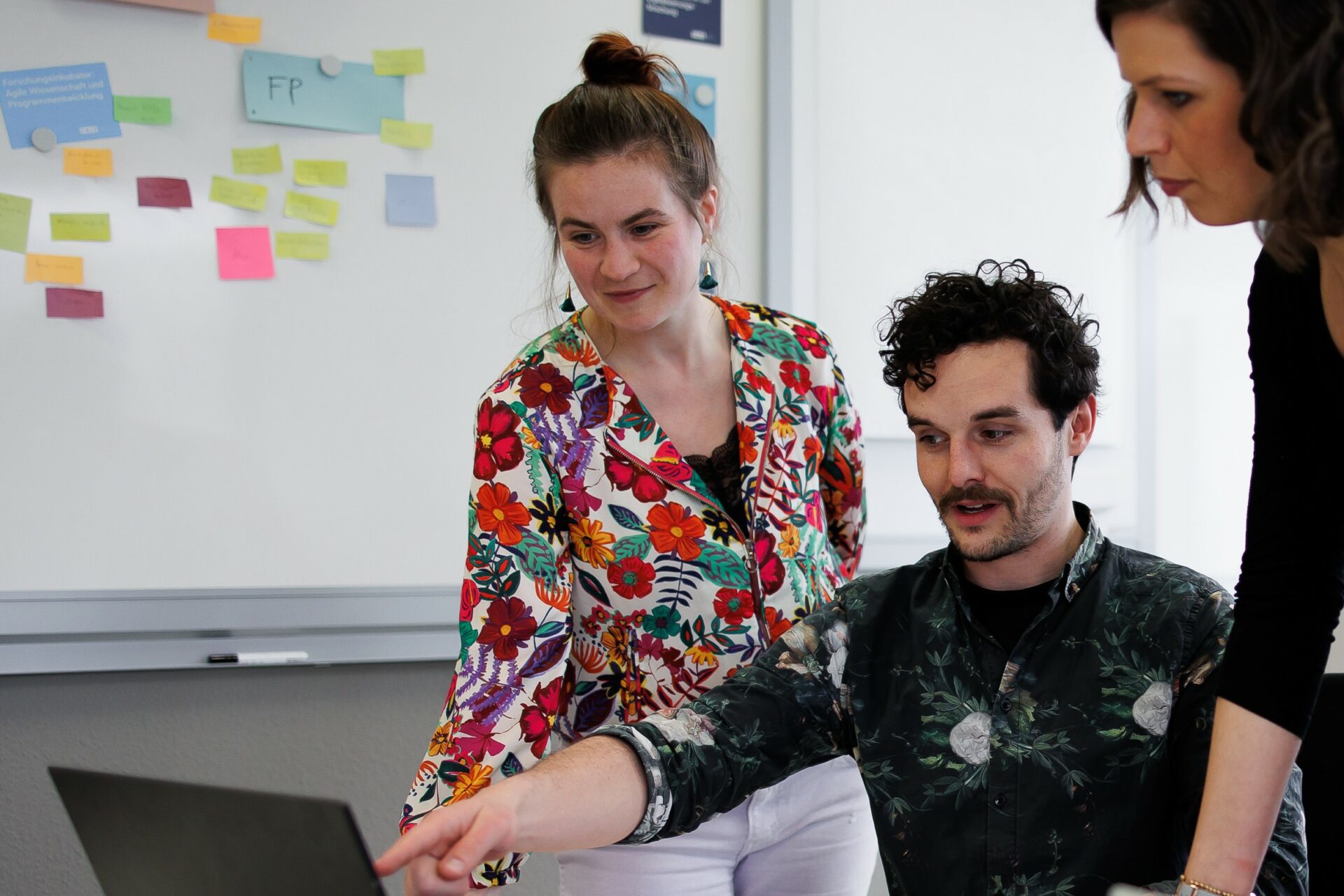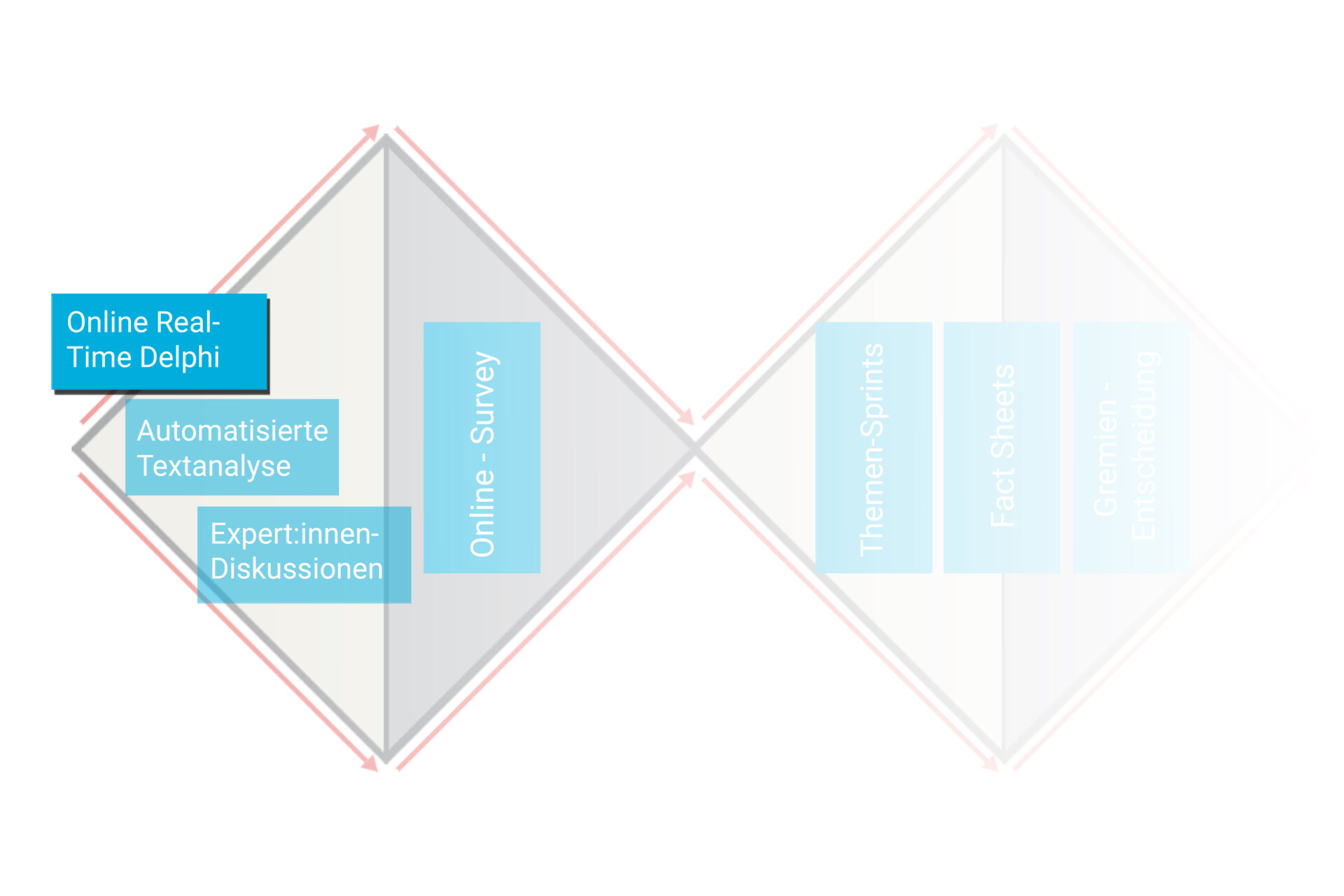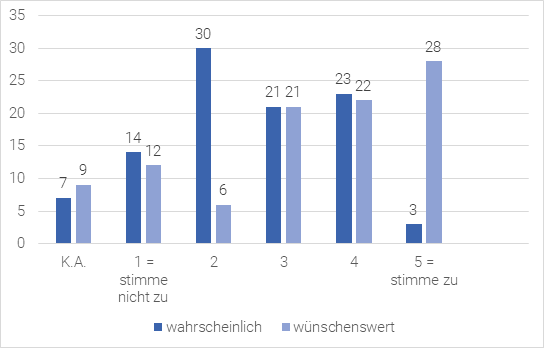Research incubator: Delphi study

CAIS surveyed scientific experts in NRW in a Delphi study. The results will help to organize future research in the field of digitization.

The digital transformation permeates all areas of society, including the sciences and their relationship to data, theories and methods. At the same time, the complexity of the digitized world and its dynamics challenge our understanding of the interaction between people, data and technology.
The digital transformation has a direct impact on the relationship between the individual and society. Far-reaching social changes and in some cases disruptive breaks in existing structures are the result. Studies suggest that people vacillate between confidence and skepticism about the technological changes and innovations in their everyday lives (Hampel, et al. 2019; Kirchner, 2019).
But how is scientific research responding to the upheavals of digitization? How will digitization research develop? What should be the focus in terms of content? How should interdisciplinary research in the field of digitization be designed, focusing on the opportunities and challenges for people?
You can find the visualization of the whole topic finding process in this video.
Literature
Döring, N. & Bortz, J. (2016). Datenerhebung. In N. Döring & J. Bortz (Hrsg.) (2016). Forschungsmethoden und Evaluation in den Sozial- und Humanwissenschaften. Berlin Heidelberg: Springer-Verlag.
Hampel, J., Zwick, M. M. & Störk-Biber, C. (2019). Technik Radar 2019. Was die Deutschen über Technik denken. Eine Studie von der Deutschen Akademie der Technikwissenschaften und der Körber-Stiftung. Abgerufen am 17. Dezember 2019 von https://www.koerber-stiftung.de/fileadmin/user_upload/koerber-stiftung/redaktion/technikradar/pdf/2019/Technikradar-2019_Langfassung.pdf
Kirchner, S. (2019). Zeit für ein Update. Was die Menschen in Deutschland über Digitalisierung denken. Friedrich-Ebert-Stiftung. Abgerufen am 17. Dezember 2019 von http://library.fes.de/pdf-files/fes/15549.pdf
Predictions of future challenges
In order to identify future priorities and challenges, an online real-time Delphi was conducted. This format is an adaptation of the Delphi method: In at least two rounds of written questioning, expert knowledge and expert assessments are collected on a specific issue, whereby the participants have the opportunity to correct their statements during the process (Döring & Bortz, 2016, see also Figure 1).

Abbildung 1. Überblick über den methodischen Zugang
The aim of the various rounds of questioning is to record consensus and dissent in judgments. From this, well-founded predictions are to be derived. The results will help to focus and organize future research in the field of digitization. Based on the experts’ assessments, the study will also identify guiding questions and focal points for digitization research. The study is thus an important building block in the identification of research topics at CAIS.
Online survey of almost 100 scientists
A standardized online questionnaire was used to survey the importance of digitization, relevant topics, and assessments of the future of digitization research (theories, data, methods, interdisciplinary collaboration). The results were summarized after each topic block and fed back to the participants so that they could adjust their answers if necessary.
In September and October 2019, 98 experts (professors and postdocs from different research institutions in NRW; w = 18, m = 53, n.s. = 27) participated in the study. 21 persons indicated a technical background, 28 a social and economic science background, six a humanities and cultural science background, and eight participants a medical or natural science background.
Digitization research is multifaceted
More than three quarters of the experts consider digitization to be a key and lasting driver of social modernization. In terms of topics, the focus is on algorithms, social media and Work 4.0. In addition, areas such as IT security and data protection as well as education and digital sovereignty are rated as significant (see Figure 3) – topics in which even scientific laypersons see a need for action (Hampel et al., 2019; Kirchner, 2019). Although research into artificial intelligence (AI) is also important for the experts, more than one in three assesses the expectations of societal changes due to AI as rather or very exaggerated.

Abbildung 3. Wortwolke zentraler Begriffe der offenen Antworten
Digitization research should be interdisciplinary and transparent
Digitization is as diverse as the disciplines that should be involved in its study. Although the involvement of computer scientists is considered necessary, the experts also believe that digitization research does not necessarily have to be established as a separate discipline, but should at least be interdisciplinary (see Figure 4 & Figure 5): In addition to various sub-disciplines of computer science, social and socio-scientific subjects in particular should be involved. Interdisciplinarity also requires openness on the part of researchers to new methods and the revision of established theories; the complexity and dynamics of digital data also demand transparency and traceability of the research process.

Abbildung 4. In zehn Jahren hat sich Digitalisierungsforschung als neue Disziplin etabliert.

Abbildung 5. In fünf Jahren sind alle Projekte der Digitalisierungsforschung interdisziplinär.